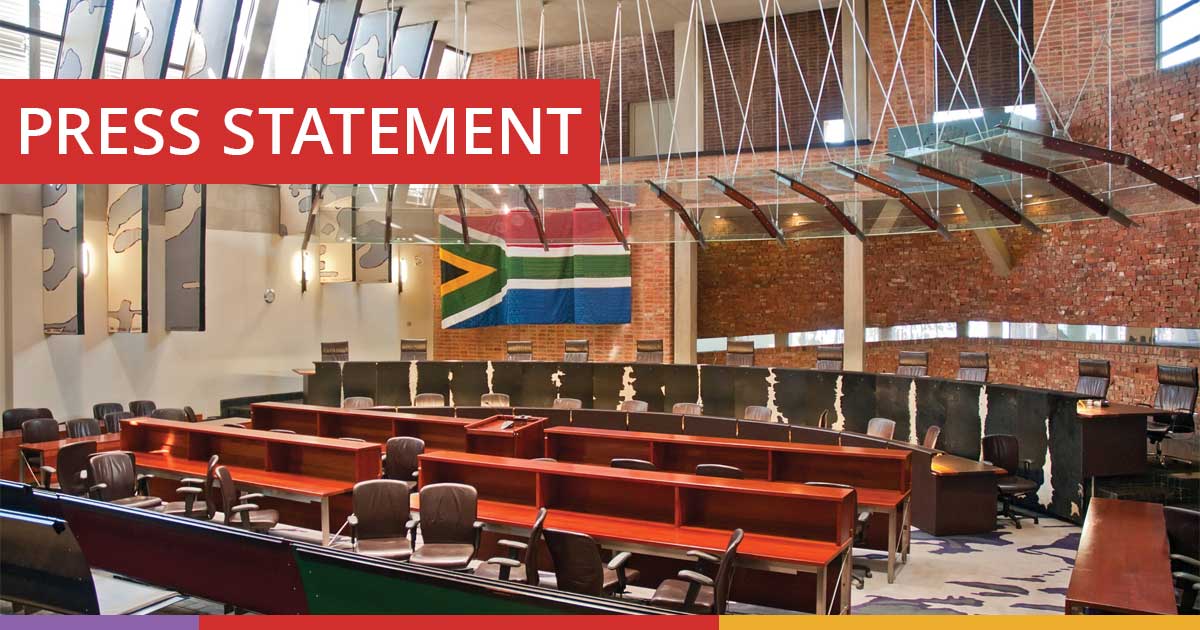The Centre for Human Rights (CHR) and the Psychological Society of South Africa (PsySSA) have been formally admitted as joint amici curiae (friends of the court) in the case of Embrace Project NPC and Another v Minister of Justice and Correctional Services and Others (Case no.: 48656/2022) (“Embrace Project case”).
About the Case
The Embrace Project, a non – profit organisation, and a rape survivor have filed an application challenging the constitutionality of the Criminal Law (Sexual Offences and Related Matters) Act 32 of 2007 (the Act). Specifically, the Applicants challenge the defence that an accused person may raise during a trial, that they possessed an unqualified subjective belief in consent i.e. that the victim consented, even if a ‘reasonable’ person would have concerns regarding whether there was in fact consent. Currently, the Act allows for a perpetrator of rape and/or sexual violence to be acquitted if they subjectively believed that there was consent, even if that belief was unreasonable. The Minister of Justice and Correctional Services, the President of South Africa and the Minister of Women, Youth and Persons with Disabilities are cited as respondents with only the Minister of Justice and Correctional Services formally opposing the constitutional challenge.
The Centre for Applied Legal Studies (CALS) has intervened in the case as an additional applicant in the public interest. CALS’ argument is premised on the notion that the issue is not with the existence of the defence of mistaken belief in consent, but rather with having rape and other sexual offences defined in terms of a lack of consent. CALS therefore argues that the current definition of consent in the Act places a limitation on several intersecting rights of survivors and should be deemed unconstitutional.
In its answering papers, the Minister of Justice and Correctional Services has argued that the relief sought by the applicants would have the effect of revoking an accused’s constitutional rights enshrined in section 35 of the Constitution, especially the presumption of innocence. The Minister has also submitted that “South Africa has made every endeavour to promote the equality of women” and that South Africa has established the legal protection of the rights of women on an equal basis with men. The Minister has further insisted in his affidavit that “…the applicants are only driven by their ego towards men and they are using their emotions to persuade the court to declare unconstitutional an Act which is line with the Constitution”.
CHR and PsySSA’s amici brief
The Centre for Human Rights and PsySSA has received consent from all the parties to intervene as amici curiae, file written submissions and present oral argument before the Court. We intend to assist the Court with psycho–legal submissions around the various ways that survivors may respond in situations of sexual assault and the subsequent need to factor in these responses in the prosecution of sexual assault and rape cases in South Africa.
Advocate Tamika Thumbiran is on brief for CHR and PsySSA with Lawyers for Human Rights as our Attorneys of Record. A hearing date for the matter will be allocated in due course.
For more information, please contact:
Tel: +27 (0) 12 420 3228
frans.viljoen@up.ac.za
michael.nyarko@up.ac.za


